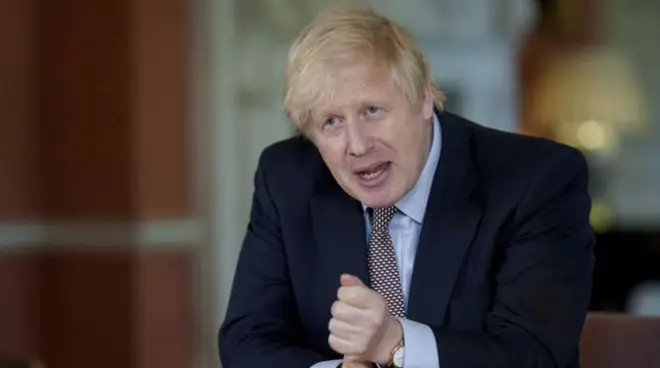
Matthew Wright 7am - 10am
11 May 2020, 18:08 | Updated: 11 May 2020, 18:13

"PM is creating an unequal crisis," says public policy expert
People who are in professional occupations are ten times more likely to be able to work from home than the lowest paid in society - by urging people to return he is shaping an "unequal crisis," says a public policy expert.
After releasing a 50-page document detailing the new lockdown rules, Boris Johnson told the Commons the advice is still largely to stay at home but go to work if you can.
"We will count on employers to be reasonable," he said, "If they can't get the childcare, then plainly they can't go to work."
Public policy expert Carys Roberts told LBC that while some employers will be careful to adhere to social distancing but there will also be some that will not.
"This is not going to impact people equally. We know that the people who are most likely able to work from home are the highest paid people, so people in managerial professions and professional occupations.
"They're actually ten times as likely to work from home as the lowest paid people in our economy, so in terms of who is going to be affected by this - and there'll be real impacts from this - is very much shaped by what kind of work people have."

Ms Roberts continued that those in lowest paid work may also be in insecure work and therefore feel less able to negotiate with their employers and raise these sorts of issues. She said there needs to be clear guidance on who exactly is expected to go back.
Eddie Mair cited Office for National Statistics figures that shows people in lower paid jobs including security guards, bus drivers and coach drivers, have among the highest Covid-19 death rates, "this would rather suggest there is a social class divide when it comes to this virus."
Ms Roberts said this is "absolutely" the case, adding that women are often responsible for childcare, and as the schools have not yet reopened, "that makes it really hard for people to decide...they'll be worried about what that might mean for their future employment."
She also reiterated that those of lower income are less likely to have a car and so more dependent on public transport, which would heighten their risk of contracting coronavirus.
"There's so many different ways in which this plays out to potentially create quite an unequal crisis," she said.